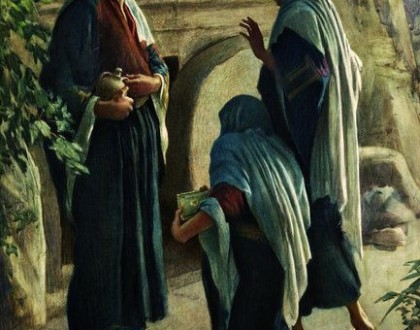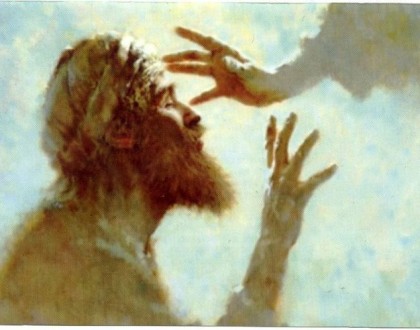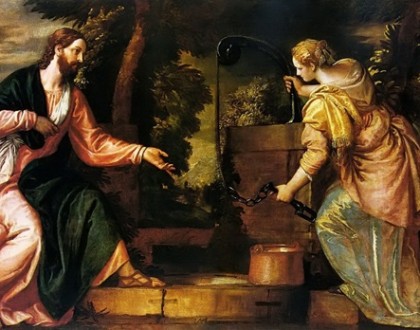Ash Wednesday 2015

Ash Wednesday 2015
This week’s reflections will be a few thoughts on how to live the Lenten season which will be upon us very soon.
Prayer, fasting, alms giving
The Church traditionally says there are 3 things we ought to “do” during lent. Putting stress on the word “do”. We emphasize very often the interior dimension. That lent is about attitudes, ideas and intentions. In the traditional practice of the Church, lent is about doing things. Things that involves the body as much as the mind. That involves the exterior of your life as much as the interior.
There is a very Catholic principle that goes like this….. what your body does your soul will follow. We like to give bodily expression to spiritual movement, acting out with our whole person the conversion process. That’s why we love pilgrimages, going on our knees to pray, sign of the cross, rosary; that engages the body, mind and will, we love “smells and bells” as we say because they awaken the body and lead the soul into the divine.
Take pilgrimages for example; lent is all about conversion, “metanoia” in the Greek of the Gospel, “beyond the mind”; to go beyond the present way the mind perceives, to change the way we see things. To travel to a place of pilgrimage… (Bible full of pilgrimages…Abraham leaves his home and sets off…Moses journeys to the promised land, Mary to Hill Country to visit her cousin Elizabeth, Jesus to Jerusalem….)….is to mimic the arduousness of the spiritual path, the soul follows the lead….
The 3 great practices of lent are prayer, fasting and alms giving. Lets look at each one in turn.
Prayer has been defined in all sorts of ways over the centuries. There are many many different ways of practicing prayer.
Prayer is a conscious and disciplined accessing of the center. Jesus Christ wants to be the center of your life. That power around which all of your talents, abilities, your powers revolve. Jesus says I want to live in you, I want to be your life, your mind, your will. To pray, is to access that center. To become aware of it. To live in it, to be open to it in a conscious and disciplined way. Lent the Church says is a great time for this practice of prayer.
Here are some very practical things; The Jesus prayer…. its a very ancient prayer form and very simple. Its roots are biblical. It flourished especially in the East, in the monasteries of the Byzantine Church. The Jesus prayer unfolds this way. As you breath in deeply you say “Lord Jesus Christ Son of God” and then as you breath out you say “Have mercy on me a sinner”. Notice please how it involves the mind; you are thinking about Christ, you are thinking about sin, about forgiveness. It involves the will, the desire and it involves the body. As you breathe in you fill your lungs, you are signaling to your body, that you are filling your life up with Jesus Christ, you breathe Him in. Then as you breathe out, “have mercy on me a sinner”.
You are breathing out all the negative spirits in your life. You are breathing out sin, negativity. If you read the book “The way of the pilgrim”, its a very short little book. It’s all about a young man who discovered the Jesus prayer. And it changes his life. He was leafing through the bible on day and he found St Paul’s invitation to pray constantly. And he wondered what that meant. So he sought out various spiritual masters. Until he finally came to someone who finally explained to him what it meant. He said it means you should practice the Jesus prayer. “Lord Jesus Christ Son of God. have mercy on me a sinner”. How many times ? Hundreds of times. Thousands of times. As you make your way through the day, maybe pausing and very consciously saying it in a very focused way. But let that prayer seep into your bones. Let it seep into your lungs, your body, your mind. And what this young man discovered was that his whole life changed as he let the Jesus Prayer work its way through his whole being.
The beauty of the Jesus Prayer is that you can pray it in a very concentrated way, you can spend an hour in the morning, in the evening with this prayer. Sit before the Blessed Sacrament and pray it. Or you can pray it for a minute, maybe in the midst of a very busy hectic day. Facing though decisions, take a minute, take 30 seconds and pray this prayer. Lets say you are caught in traffic, you can give yourself over to frustration or you can give yourself over to prayer, to access the deep center. To make contact with Jesus Christ.
The second great practice of lent is fasting. Jesus himself fasted for 40 days in the desert. It’s an ancient and powerful spiritual practice. Why do we fast ? Because we have a hunger for God. Which is the deepest hunger. We`re meant to feel that hunger, to access it so that it can direct us towards God. What’s the danger ? (and every spiritual master East and West recognizes this), the danger is that if we allow the superficial hungers of our lives to dominate, we never reach the deep hunger.
Thomas Merton once said that the hungers for food, for drink and for shelter, for sex are like children because they are insistent, they are immediate, they want satisfaction now. The way a little kid does, give me this now, therefore these desires can dominate the soul very quickly if we let them. Fasting is a way of disciplining those desires. Quieting those desires. Not responding immediately to them so that the deep desire, the deep thirst and hunger might emerge. Unless you fast you might never even realize how hungry you are for God.
How about some practical suggestions…the Church tells us clearly to follow certain dieting recommendations during the Lenten season, abstaining from meat on Fridays, having certain days of fast, these really aren`t all that stringent and Catholics are encouraged to follow them. But maybe we could try skipping a meal once a week during lent, and taking the money you would have spent in that meal and giving it to the poor. Or skipping a meal and during that time pray the rosary. To substitute the hunger and thirst for God, in a conscious way, for the hunger and thirst for food and drink.
But here’s the thing, don’t simply do it as a kind of masochistic self-punishment. “I’m fasting from this meal and now I’m miserable….I’m not smoking and that’s making me crazy” …… rather feel that hunger, that need, that lack, and then treat it as a kind of sacrament of your divine hunger. Feel that hunger and say “Lord I know this is symbolic for me of the hunger and thirst for you”…. feel that as you fast.
The 3rd practice, the one that’s often the most overlooked; alms-giving. During lent we are encouraged to give alms to the poor. Because we are members of a body. The Church is not a club, a society, not a collection of like-minded people. The Church is a body. We participate in Christ, we are the cells and molecules of his body. What that means of course is that we are connected one to another. Just as the organs of a body are interconnected. If the liver has a problem its the whole body’s problem. The lungs have a problem…the whole body is affected. So we Christians say and believe that if you have a problem, that’s my problem too. Because we are connected. If someone in the far corner of the world is hungry, is thirsty or alone or afraid, I can’t say; “that’s their problem”. That’s our problem. We give alms because we are connected to each other.
How do you give alms ? Here are some concrete suggestions….. as a kid in Ireland we used to have a poor box, the “trocaire box” as we’d call it. During lent put a poor box next to your door and then every time you leave during lent, put something in that box. It could be 50 cents, 1 dollar, 10 dollars…whatever, and encourage your family to do it too. Knowing that each time there is somebody in the body of Christ who needs it.
Ask; am I giving, doing, caring, follow the Gospel’s recommendation and do 3 things….pray, fast and give alms.
Another ancient practice is to set an extra place at your table, at dinner. To remind you of that person in the body of Christ, who is starving. Who doesn’t have enough to eat. And then take the money you would have spent to prepare that meal, put that in the poor box.
Here is one that’s very difficult….St John Chrysostom said that “If you have 2 shirts in your closet, one belongs to you and the other belongs to the man who has no shirt. If you have 2 cloaks in your closet, one belongs to you and one to the man who has no cloak”. Go into your closet this lent, we all have more clothes than we actually need. Find something in there that you don’t need, and give it to someone in the body of Christ who has far greater need of this than I do. This lent forget about fussy introspection, ask not am I happy ? Ask; am I giving, doing, caring, follow the Gospel’s recommendation and do 3 things….pray, fast and give alms.
Recent Sermons

Easter Sunday – The Resurrection
April 14, 2017

4th Sunday of Lent Year A – The Man Born Blind
March 27, 2017

3rd Sunday of Lent Year A – The Samaritan Woman at the Well
March 20, 2017





